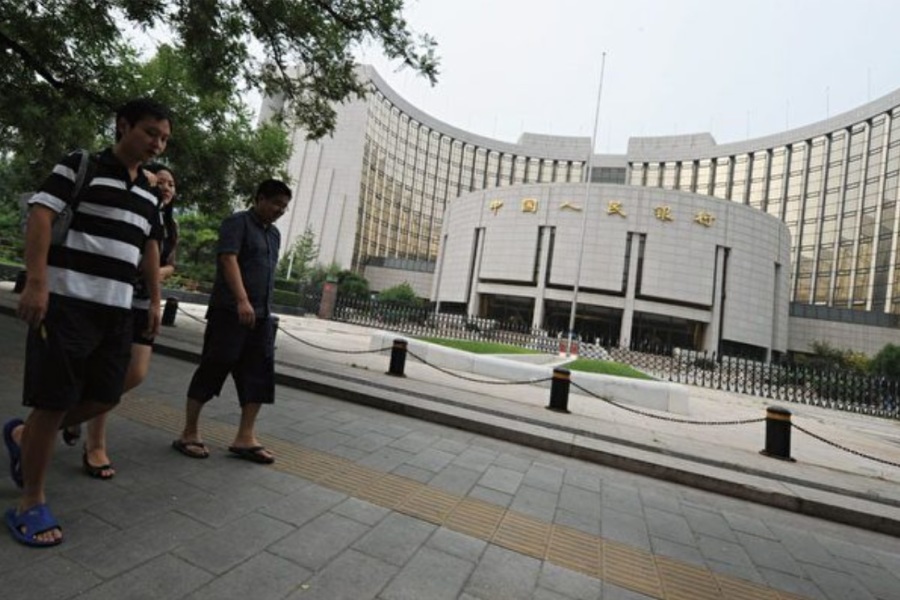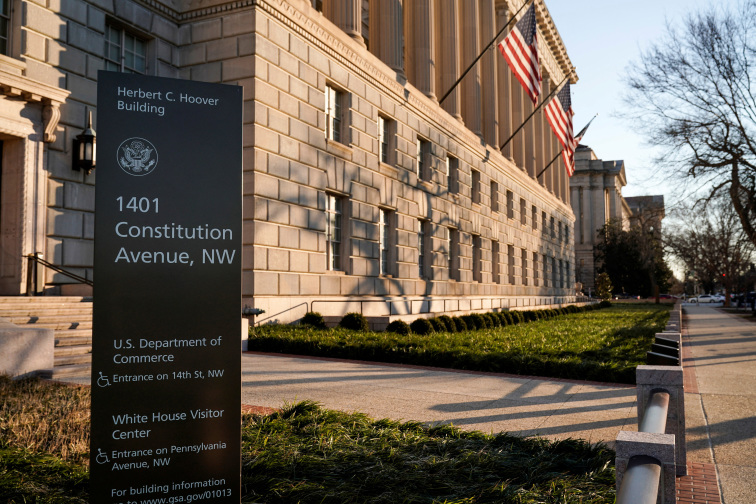A group of citizens passes by a branch of the People's Bank of China (screenshot from X/@dujuncn).
[People News] Starting this month, the Chinese government has implemented a significant 50% salary reduction for staff at its three major financial regulatory agencies. This is part of a reform initiative, launched in 2023, aimed at aligning the salary levels of financial regulatory agency employees with those of civil servants in other government departments.
According to Voice of America, a report from Reuters on Tuesday (January 14) cited four anonymous sources revealing that staff at the People’s Bank of China (PBOC), the National Financial Regulatory Administration (NFRA), and the China Securities Regulatory Commission (CSRC) have experienced salary cuts of about 50% starting January 2025.
The Reuters report noted that the four sources, familiar with the matter, requested anonymity due to the sensitivity of the issue.
The salary cuts come as the Chinese government urges citizens, particularly millions of stable and well-paid civil servants, to increase their spending to support economic growth heading into 2025.
This move also marks a significant shift in the salary policies of financial regulatory agencies, occurring two years after reforms aimed at strengthening top-tier government authority and oversight.
Reuters reported that it reached out to the State Council Information Office for comments on this matter but did not receive an immediate response.
The report also mentioned that none of the three top financial regulatory agencies disclose their staff numbers publicly.
The National Financial Regulatory Administration, established in May 2023, oversees regulatory duties in banking and insurance sectors. Like the CSRC, it is directly under the jurisdiction of the State Council. Since 1997, the People’s Bank of China has also operated under the State Council, with its employees’ salaries gradually aligning with those of the other two agencies in recent years.
According to experts cited by Reuters, after this salary reform, employees of the three major financial regulatory agencies will see their salaries reduced to levels comparable to those in other government departments, such as the Ministry of Finance and the National Development and Reform Commission (NDRC).
Before this reform, the NFRA and CSRC were considered public institutions, and their employees enjoyed significantly higher, so-called competitive salaries compared to civil servants in other ministries.
One source told Reuters that before the recent salary reform, a department head at the China Securities Regulatory Commission (CSRC) could earn an annual salary of 300,000 to 400,000 yuan (approximately $41,000 to $55,000), nearly double the income of civil servants in other government ministries.
A second source stated that following the reform, while department heads at the three major financial regulatory agencies would see their salaries cut in half, officials below this rank would face a slightly lesser reduction of about 40%.
This source also noted that high-ranking executives at the level of agency directors or above might experience even steeper salary cuts, potentially up to 60%.
Reuters highlighted that the salary reductions at the three financial regulatory agencies come at a particularly delicate moment. The government has been urging citizens to spend more to boost economic growth, making this move appear contradictory to some of the Chinese government’s other recent measures.
Some insiders told Reuters that earlier this month, millions of Chinese civil servants unexpectedly received a pay raise, with monthly salaries increasing by about 500 yuan (approximately $70).
The last nationwide pay increase for civil servants in China occurred in 2015. At that time, the government aimed to promote "high pay to ensure integrity" and stimulate consumption, resulting in a 30% salary hike for local officials.
Earlier this month, a senior official in Chongqing, a major city in southwestern China, also called on party members and cadres to take the lead in boosting consumption.
Civil servant jobs in China are highly sought after due to their stability, high income, and comprehensive benefits. Amid uncertain prospects in the private sector, many university graduates are gravitating toward government jobs. Last year, a record-breaking 3.4 million people registered for the civil service exam.
However, over the past two years, some local governments have struggled to pay civil servant salaries due to mounting debt and worsening financial conditions. In some cases, civil servant monthly salaries have been reduced to as low as 4,000 yuan (approximately $550), leaving them to support families and often repay mortgages or other loans.











News magazine bootstrap themes!
I like this themes, fast loading and look profesional
Thank you Carlos!
You're welcome!
Please support me with give positive rating!
Yes Sure!